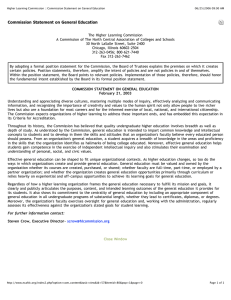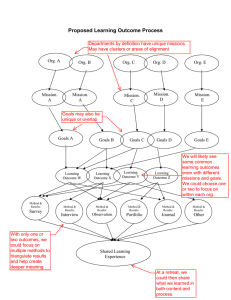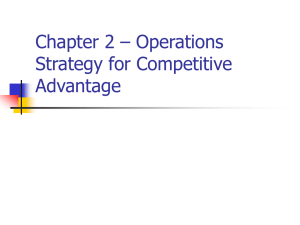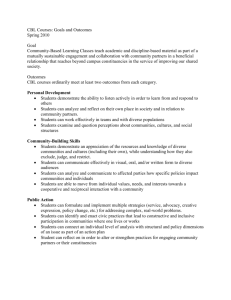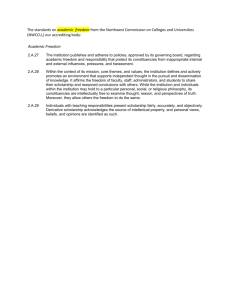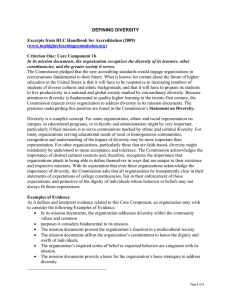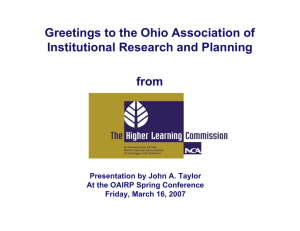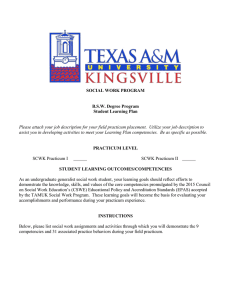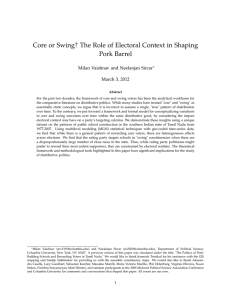Commission Statement on Diversity
advertisement
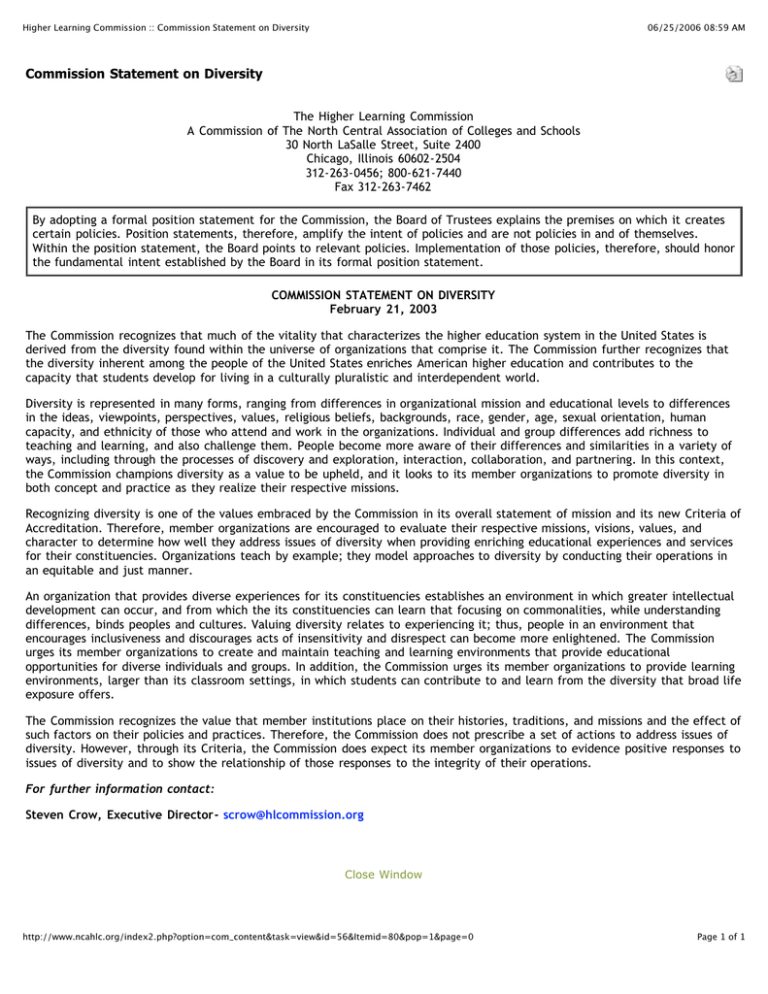
Higher Learning Commission :: Commission Statement on Diversity 06/25/2006 08:59 AM Commission Statement on Diversity The Higher Learning Commission A Commission of The North Central Association of Colleges and Schools 30 North LaSalle Street, Suite 2400 Chicago, Illinois 60602-2504 312-263-0456; 800-621-7440 Fax 312-263-7462 By adopting a formal position statement for the Commission, the Board of Trustees explains the premises on which it creates certain policies. Position statements, therefore, amplify the intent of policies and are not policies in and of themselves. Within the position statement, the Board points to relevant policies. Implementation of those policies, therefore, should honor the fundamental intent established by the Board in its formal position statement. COMMISSION STATEMENT ON DIVERSITY February 21, 2003 The Commission recognizes that much of the vitality that characterizes the higher education system in the United States is derived from the diversity found within the universe of organizations that comprise it. The Commission further recognizes that the diversity inherent among the people of the United States enriches American higher education and contributes to the capacity that students develop for living in a culturally pluralistic and interdependent world. Diversity is represented in many forms, ranging from differences in organizational mission and educational levels to differences in the ideas, viewpoints, perspectives, values, religious beliefs, backgrounds, race, gender, age, sexual orientation, human capacity, and ethnicity of those who attend and work in the organizations. Individual and group differences add richness to teaching and learning, and also challenge them. People become more aware of their differences and similarities in a variety of ways, including through the processes of discovery and exploration, interaction, collaboration, and partnering. In this context, the Commission champions diversity as a value to be upheld, and it looks to its member organizations to promote diversity in both concept and practice as they realize their respective missions. Recognizing diversity is one of the values embraced by the Commission in its overall statement of mission and its new Criteria of Accreditation. Therefore, member organizations are encouraged to evaluate their respective missions, visions, values, and character to determine how well they address issues of diversity when providing enriching educational experiences and services for their constituencies. Organizations teach by example; they model approaches to diversity by conducting their operations in an equitable and just manner. An organization that provides diverse experiences for its constituencies establishes an environment in which greater intellectual development can occur, and from which the its constituencies can learn that focusing on commonalities, while understanding differences, binds peoples and cultures. Valuing diversity relates to experiencing it; thus, people in an environment that encourages inclusiveness and discourages acts of insensitivity and disrespect can become more enlightened. The Commission urges its member organizations to create and maintain teaching and learning environments that provide educational opportunities for diverse individuals and groups. In addition, the Commission urges its member organizations to provide learning environments, larger than its classroom settings, in which students can contribute to and learn from the diversity that broad life exposure offers. The Commission recognizes the value that member institutions place on their histories, traditions, and missions and the effect of such factors on their policies and practices. Therefore, the Commission does not prescribe a set of actions to address issues of diversity. However, through its Criteria, the Commission does expect its member organizations to evidence positive responses to issues of diversity and to show the relationship of those responses to the integrity of their operations. For further information contact: Steven Crow, Executive Director- scrow@hlcommission.org Close Window http://www.ncahlc.org/index2.php?option=com_content&task=view&id=56&Itemid=80&pop=1&page=0 Page 1 of 1
